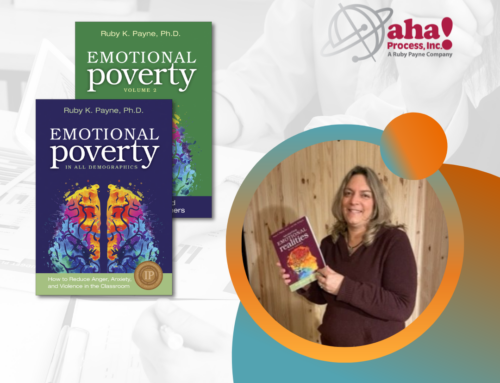This series shares lessons I learned during a summer session with middle school students labeled “reluctant” to learn English. Follow this link for Part 1 of the series.
Lesson #2: If you want people to “want” to do something different—especially something they consider unpleasant—adding robust joy is a must!
In the summer session for “reluctant” English language learners, my co-teacher and I worked to facilitate a safe environment. As students responded by speaking their thoughts and beliefs freely and respectfully, another understanding surfaced. It was so simple and blatant that I was almost ashamed for not having seen it earlier. In our students’ experience, English was never fun.
The students associated English strictly with quizzes, tests, drills, writing, hard-to-understand stories, and above all, failure. Why would anyone want to be associated with something that brought about such oppressive emotions? Consequently, the language divide caused Spanish to remain the language in their hearts while English was only the language in their heads.
Co-teacher Jose and I made it our goal to get our students to enjoy themselves while experiencing the English language. The results were astounding.
The following are some of the strategies we used:
- Students act out vocabulary words. The process is nonverbal, physical, and often hilarious. Imagine trying to act out the word resolution without pausing to think and laughing at your own antics and funny attempts, both successful and not. Teachers should act out one or two words first to break the ice.
- Students translate song lyrics they find meaningful. Students were asked to find the lyrics to songs in Spanish that they truly enjoyed. (Yes, we did stress that the lyrics should be appropriate for school.) After they translated the songs into English, we followed a three-step process. (1) We would play 30 seconds of each selection for the entire class. (2) They would read the English translation out loud. (3) They would tell, in English, what the song meant to them.
The results were productive and meaningful. Because the assignment was rooted in what students considered to be part of their identity, the assignment was taken seriously. Having the opportunity to share of themselves through a very personal medium made the lesson relevant and profound.
- Students watch short video clips in English and read the script of the same scene. One of the trials in learning a foreign language is to abandon the rhythm and cadence of the language that is familiar. Watching five-minute clips from movies and 30-second commercials was enough for our students to listen to and mimic the characteristics of the English language. Having the delivery of the line modeled moments before they were expected to read drastically reduced the stress of fumbling and shame. Instead, they mimicked what they had just witnessed and laughed and high-fived while reading aloud with newfound confidence. Any scene with humor instantly became their favorite. Discussions afterward were enthusiastic and filled with questions that were often answered by other students.
- Encourage the telling of jokes. Jokes were told during lunch, transitions, and as sponge activities. Jokes take higher-level thinking skills, and they add a dimension of enjoyment that is hard to find in an average lesson.
The results?
Like I said, the results were astounding. The students became animated, exuberant, and to say that there was much laughter is an understatement. Cheering on their own successes with English became commonplace. The group’s greatest accomplishment was that the students began to socialize in English. In the beginning, when students were waiting for class to start, they would be in the hallway speaking Spanish to one another. After two or three weeks, we were hearing more and more English during those times and also at lunch and dismissal.
We learn language first through speech, then by reading, followed by writing, and lastly by thinking in the new language. Our students actually began the process of thinking in English because they came to appreciate the English language through joyful experiences. The joy made its way into their hearts, and their hearts informed their minds that English is a good thing.
Click here to go to Part 3 of this series.








